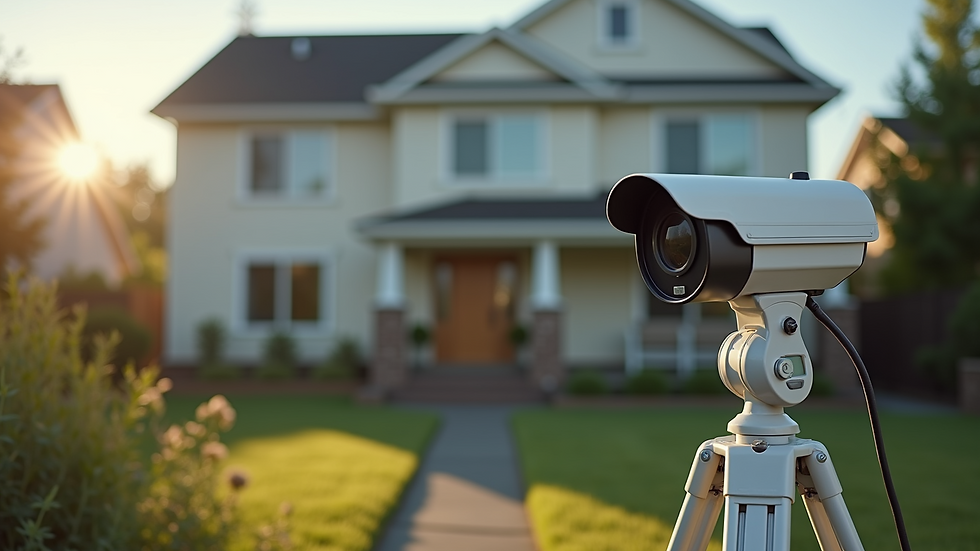The Importance of Hiring a Licensed Home Inspector
- otterinspections
- Jun 22, 2025
- 4 min read
When buying or selling a home, you may come across the term “licensed home inspector.” The role of a home inspector might seem straightforward, but their expertise can be the difference between a seamless transaction and a financial disaster. This blog post will explore why hiring a licensed home inspector is essential, how they can protect your investment, and what to expect during a home inspection.
What is a Licensed Home Inspector?
A licensed home inspector is a trained professional who examines the various systems and structures of a home. These individuals possess the knowledge, skills, and certifications needed to assess the condition of a home thoroughly. Their inspection typically includes looking at:
Roof
Plumbing
Electrical systems
HVAC (heating, ventilation, and air conditioning)
Structural integrity
By hiring a certified home inspector, you can ensure that the inspection is conducted according to local and national standards.

Benefits of Hiring a Licensed Home Inspector
Many prospective homeowners might wonder whether hiring a licensed home inspector is worth the expense. Here are several compelling reasons why investing in a home inspection is crucial:
1. Uncover Hidden Problems
A home may look perfect on the surface but could hide severe issues beneath. A licensed inspector can detect problems such as mold, moisture issues, or structural damage. For instance, an inspector might identify a poorly installed roof that could lead to leaks or extensive water damage over time.

2. Save Money in the Long Run
Investing in a home inspection might save you thousands of dollars in repairs down the line. According to the National Association of Realtors, approximately 84% of buyers negotiate a price reduction based on the findings of the inspection report. For example, if a home inspector finds faulty plumbing, you can request that the seller fix the problem or lower the home price accordingly.
3. Gain Peace of Mind
Purchasing a home is one of the most significant investments many people will make in their lifetime. A thorough home inspection provides peace of mind, knowing you are making an informed decision. Licensed home inspectors present detailed reports outlining their findings, which helps potential buyers understand the property's condition comprehensively.
What to Expect During a Home Inspection
Understanding the inspection process will help alleviate your concerns and prepare you for what to expect.
1. Duration and Scope
Most home inspections take about 2 to 4 hours, depending on the size and condition of the property. Inspectors will evaluate both the exterior and interior of the home, so ensure to schedule enough time to go through the entire process.
2. Accompanying the Inspector
It is highly recommended that you accompany the home inspector during the inspection. This allows you to ask questions and receive immediate feedback on your specific concerns. Observing the inspection will also help you understand better the aspects of home maintenance that you may need to address in the future.
3. Detailed Report
After the inspection, you will receive a comprehensive report that outlines the inspector's findings, photographs of significant issues, and recommendations for repairs. This report serves as a valuable resource not just for negotiating repairs but also for long-term upkeep of the property.
Common Issues Found During Home Inspections
Licensed home inspectors are trained to spot a range of issues that may be present in homes. Here are some common problems they identify:
1. Electrical Hazards
Homes may have outdated electrical systems that pose safety risks, such as faulty wiring or insufficient load capacity. Inspectors will check the main electrical panel and test outlets throughout the house.
2. Plumbing Problems
Leaky pipes, poor drainage, and inadequate water pressure are just some plumbing issues inspectors might uncover. Left unaddressed, these problems can lead to severe mold growth or structural damage due to water infiltration.
3. Roof Issues
The condition of the roof can be critical. An aging roof may have loose shingles or sagging, which can result in leaks. A thorough evaluation ensures you are aware of any roof repair needs before making a purchase.

The Role of a Licensed Home Inspector in Real Estate Transactions
A licensed home inspector plays an integral role in real estate transactions. Their work can facilitate smoother processes for both buyers and sellers.
1. Assisting Sellers
Sellers who choose to get a pre-listing inspection can address issues before putting their home on the market, potentially leading to a faster sale at a better price.
2. Empowering Buyers
For buyers, an inspection report can serve as a bargaining tool. If significant repairs are noted, a buyer may negotiate the repairs with the seller or request a price reduction.
3. Educational Resource
Home inspectors do more than just analyze significant systems; they also provide educational insights into home maintenance and repairs. You will learn valuable information about how to care for your new investment, helping you save money in the long run.
Final Considerations
Purchasing a home is complex, and the stakes are high. Hiring a licensed home inspector is a proactive step ensuring that your investment is sound. With potential hidden issues uncovered, the certainty of being informed, and the financial benefits at play, it's a decision you won't regret.
Investing in a certified home inspector provides clarity and ensures that your new home is a safe, sound investment for years to come. Never underestimate the power of a thorough home inspection. It's an essential component of any real estate transaction that should not be overlooked.
Making informed decisions about your home starts with hiring the right professionals to guide you. If you remember anything from this article, it should be that investing in a licensed home inspector today will pay dividends tomorrow.








Comments